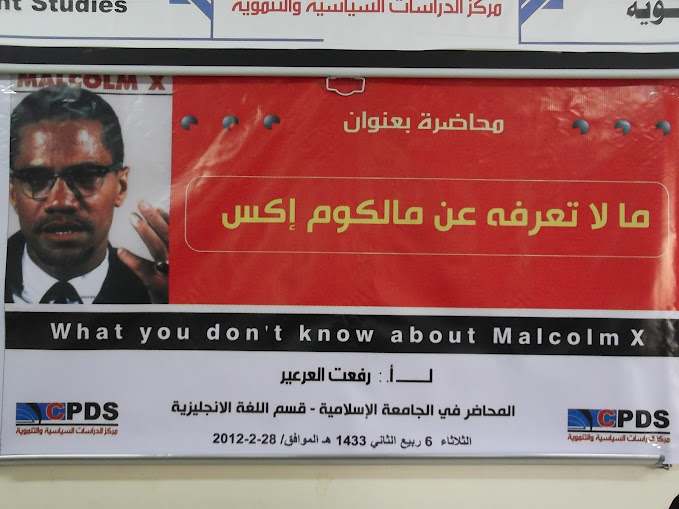Tag: Malcolm X
-
Make some noise: Malcolm X in Gaza
by Joe Catron 29 February 2012 | Alresalah Press At the end of the United States’ Black History Month, one week after the 47th anniversary of Malcolm X’s assassination in New York’s Audubon Ballroom, and another week shy of my first year in Gaza, I attended a talk on X at Gaza’s Centre for Political and…

